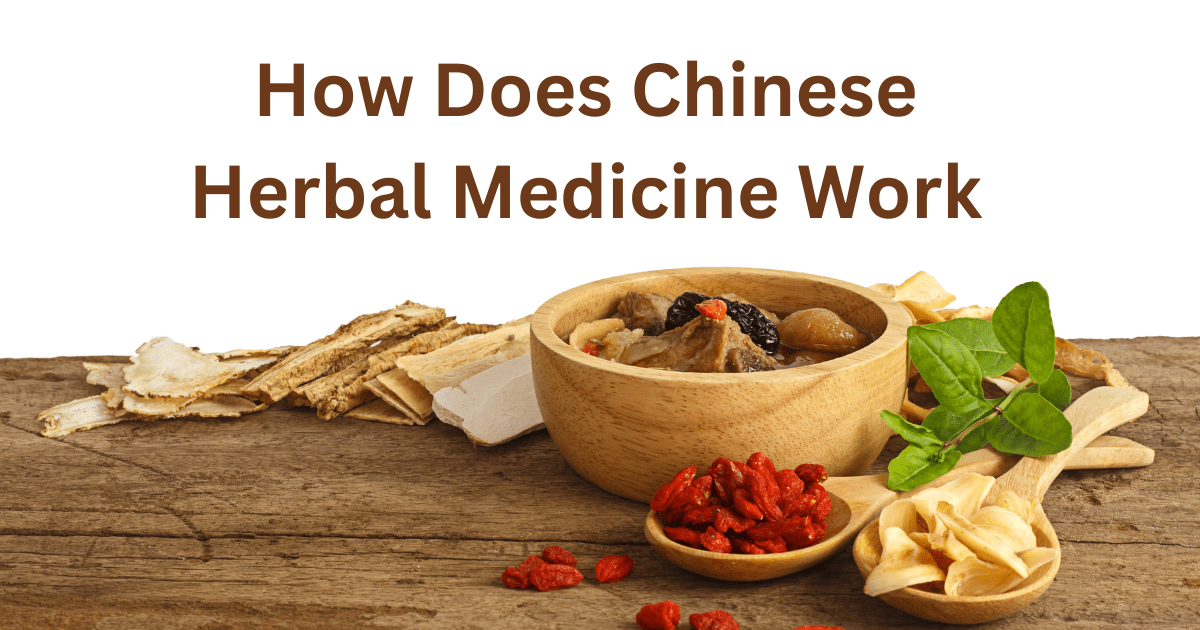How Does Chinese Herbal Medicine Work

Chinese herbal medicine is an illustrious and complex medical system that has been used for thousands of years. It has its roots in traditional Chinese medicine (TCM). It uses a wide range of organic ingredients to promote health and treat a variety of illnesses, including plants, minerals, and animal products. We’ll delve into the intriguing world of Chinese herbal medicine in this blog article and examine how it promotes balance and well-being.
Chinese herbal medicine’s guiding principles
Chinese herbal medicine functions according to a number of fundamental principles embedded in traditional Chinese medicine:
Balance and Harmony:
The core idea of TCM is that the body should be in a state of balance and harmony. The five elements (Wood, Fire, Earth, Metal, and Water) and opposing forces, such as Yin and Yang, are thought to be in equilibrium in a state of health.
Qi (vital energy) and Blood:
The health of the body depends on the blood’s and Qi’s (essential energy) smooth circulation. Illness can result from imbalances or obstructions in this energy.
Discordant Patterns:
TCM diagnoses are based on locating discordant patterns inside an individual. To identify the underlying pattern, practitioners evaluate a person’s pulse, tongue, and symptoms, among other health-related factors.
The Workings of Chinese Herbal Medicine
Chinese herbal medicine functions according to a number of different therapeutic tenets:
Restoring Balance:
Herbal remedies are carefully crafted to address the body’s imbalances. For instance, herbs with cooling (Yin) characteristics may be administered to restore equilibrium if a person has excessively hot (Yang) symptoms like inflammation.
Many herbal substances are chosen because of their capacity to control the flow of Qi and blood. Symptoms like soreness, stagnation, or poor circulation may be relieved by doing this.
Organ Strengthening:
According to TCM, certain herbs are associated with particular organs. Herbal treatments can bolster and support the operations of these organs, for example, by nourishing the liver or energizing the spleen.
Detoxification:
Some plants have detoxification characteristics that aid in the body’s ability to rid itself of toxic toxins and lessen the strain on vital organs like the liver.
Some herbs contain adaptogenic properties that aid the body in adjusting to stimuli and maintaining resilience.
Treating the Fundamental Cause:
TCM places a strong emphasis on treating a condition’s fundamental cause as opposed to only its symptoms. Herbal remedies are made specifically for each patient’s particular pattern of disharmony.
Conclusion
Chinese herbal medicine is a sophisticated, all-encompassing approach that attempts to bring harmony and balance back to the body. It presents a distinct viewpoint on healthcare by addressing the underlying causes of illnesses and fostering general well-being.
While Chinese herbal medicine has a long history and is generally regarded safe when administered by trained specialists, a comprehensive diagnosis and individualized herbal treatment require the advice of a certified TCM practitioner. Its success is mainly dependent on a complex understanding of patterns of disharmony and a careful choice of herbs.
In conclusion, Chinese herbal medicine operates in accordance with the core tenets of TCM, trying to reestablish balance, control vital energies, and address the underlying causes of health problems. Its age-old knowledge still has a significant impact on holistic medicine and the quest for well-being.




